Are you looking for the best ways to streamline your shipping from Guangzhou to Chicago? Understanding the complexities of international logistics can be daunting, but it doesn’t have to be.
In this comprehensive guide, we will explore the key routes, methods, costs, and timeframes involved in shipping goods across the globe. From sea freight to air freight, we’ll cover everything you need to know, ensuring your shipments arrive efficiently and economically. Let’s dive in and unravel the process of shipping from Guangzhou to Chicago!
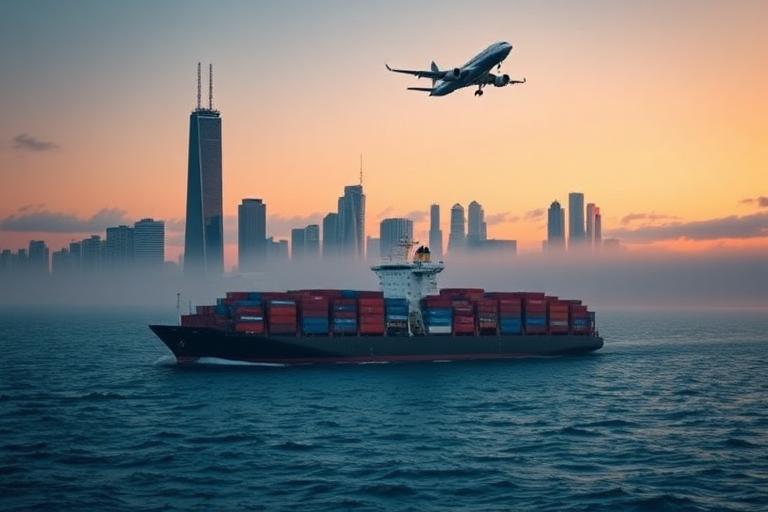
Key Routes Between Guangzhou and Chicago
When shipping goods from Guangzhou to Chicago, understanding the major shipping lanes that connect these two bustling trade hubs is crucial. The two primary routes for international shipping involve sea freight and air freight.
1. Sea Freight Route:
The most common and cost-effective method for large shipments is via sea freight. The shipping lanes typically utilized include the South China Sea, which connects to the Pacific Ocean, leading to the biggest ports in the us.
2. Air Freight Route:
For time-sensitive shipments, air freight is the preferred option. Cargo from Guangzhou is typically flown to major airports such as Los Angeles International Airport (LAX) or Chicago O’Hare International Airport (ORD). Direct flights may be available, but many shipments may require a transfer at international hubs.
Shipping Methods from Guangzhou to Chicago
Sea Freight from Guangzhou to Chicago
Sea freight is an economical option for shipping from Guangzhou to Chicago, especially for large volumes. The process involves several key stages:
Full Container Load (FCL): Ideal for shippers with enough goods to fill an entire container. The typical sizes include 20-foot and 40-foot containers, allowing for versatile cargo handling. For those interested in specific cargo types, check out fcl autoparts shipping.
Less than Container Load (LCL): Suitable for smaller shipments that do not fill a whole container. Goods from various shippers are consolidated into a single container, which can save costs for small businesses.
Estimated Costs and Transit Times: Based on the latest market trends, shipping costs can vary significantly based on container size, fuel prices, and seasonal demand. As of 2025, the average cost for FCL from Guangzhou to Chicago ranges from $1,500 to $3,000, while LCL can range from $250 to $1,000 per cubic meter. The transit time for sea freight is typically between 25 to 40 days.
Air Freight from Guangzhou to Chicago
Air freight is the fastest method for shipping goods from Guangzhou to Chicago, making it ideal for perishable items, electronics, or urgent documents.
Speed and Efficiency: Generally, goods can arrive within 5 to 10 days, depending on the route and any potential layovers.
Cost Consideration: While air freight is significantly faster, it is also more expensive, with costs ranging from $5 to $10 per kilogram depending on the weight and size of the cargo. Shippers should weigh the urgency of their shipment against the associated costs. For more information on air freight costs, see how much for air freight from china to los angeles.
Choosing the Right Method: The choice between sea and air freight ultimately depends on factors such as the nature of the goods, delivery timelines, and budget constraints. For businesses looking for a reliable and cost-effective logistics solution, Dantful International Logistics offers specialized freight forwarding services that cater to both shipping methods, ensuring that your goods arrive safely and on time.
Shipping Costs from Guangzhou to Chicago
2025 Sea Freight Cost Analysis (FCL/LCL)
In 2025, the cost of sea freight from Guangzhou to Chicago for full container loads (FCL) and less than container loads (LCL) is expected to fluctuate based on various market factors. As of now, the average cost for FCL shipping typically ranges from $1,500 to $3,000 per container, depending on the shipping line and service quality. For LCL shipments, costs typically vary between $100 and $300 per cubic meter.
Comparison Table: Sea Freight Costs (Estimated for 2025)
| Shipping Type | Estimated Cost Range | Transit Time (Days) |
|---|---|---|
| FCL | $1,500 – $3,000 | 25 – 35 |
| LCL | $100 – $300 per m³ | 30 – 45 |
These estimates can vary significantly based on the cargo type, seasonality, and demand. Collaborating with a reputable freight forwarder such as Dantful International Logistics can provide you with the most accurate and competitive quotes tailored to your specific shipping needs.
Comparing Air Freight Costs vs. Sea Freight Costs
When considering shipping options, air freight from Guangzhou to Chicago offers quicker transit times but at a higher cost. Typical rates for air freight can range from $5 to $10 per kilogram, making it a more expensive choice for larger shipments. In contrast, sea freight remains the economical option for bulky shipments, despite longer travel times.
Comparison Table: Air Freight vs. Sea Freight Costs
| Shipping Method | Estimated Cost (per kg/m³) | Average Transit Time (Days) |
|---|---|---|
| Air Freight | $5 – $10 | 3 – 7 |
| Sea Freight | $100 – $300 per m³ | 25 – 45 |
Choosing between the two will depend on your budget, urgency, and the nature of the products being shipped.
Hidden Fees When Shipping from Guangzhou to Chicago
When shipping goods, it’s essential to be aware of potential hidden fees that may arise. These can include:
- Destination Charges: These fees cover the handling and processing of your goods at the destination port.
- Documentation Fees: Charges for preparing necessary shipping documents.
- Customs Clearance Fees: Costs associated with the clearance of your goods through customs, which can vary widely.
- Terminal Handling Fees: Charges for the handling of containers at the port.
Partnering with Dantful International Logistics can help you navigate these hidden costs by providing transparent pricing and detailed breakdowns of anticipated expenses.
How to Reduce Duties with Freight Forwarder Assistance
One effective way to manage and potentially reduce import duties is through the expertise of a freight forwarder. By working with a skilled professional like Dantful International Logistics, importers can:
- Classify Goods Correctly: Ensure that goods are classified under the correct tariff codes to avoid overpayment of duties.
- Utilize Free Trade Agreements: Take advantage of any applicable trade agreements that may lower duties.
- Proper Documentation: Ensure all paperwork is in order to avoid delays and additional fees.
Investing in the services of a qualified freight forwarder can lead to significant savings on duties and minimize the overall shipping costs.
READ MORE:
- Shipping From China to the USA
- Shipping From China TO Canada
- Shipping From China TO Mexico
- Shipping From China to Panama
- Shipping From China to Costa Rica
- Shipping From China to Brazil
- Shipping From China TO Colombia
- Shipping From China to Jamaica
- Shipping From China to Venezuela
- Shipping From China to Argentina
Shipping Times from Guangzhou to Chicago
Estimated Transit Times for Sea Freight
The estimated transit time for sea freight from Guangzhou to Chicago typically ranges from 25 to 45 days. This duration can vary based on several factors, including the shipping line, the specific port of departure, and any transshipment points.
Estimated Transit Times for Air Freight
For air freight, transit times are significantly shorter, generally ranging from 3 to 7 days. However, this speed comes at a premium cost, making it suitable for time-sensitive shipments.
Factors Affecting Shipping Times from Guangzhou to Chicago
Several factors can influence shipping times when transporting goods from Guangzhou to Chicago:
- Weather Conditions: Adverse weather can delay shipments.
- Port Congestion: Busy ports can lead to longer waiting times for loading and unloading.
- Customs Processing Times: Delays at customs can add additional days to the shipping process.
- Shipping Method: The chosen shipping method (FCL, LCL, air) dramatically affects transit times.
Understanding these factors and planning accordingly with a professional freight forwarder like Dantful International Logistics can help you optimize your shipping schedule and minimize delays.
Choosing a Reliable Freight Forwarder for Your Shipment
When it comes to shipping from Guangzhou to Chicago, selecting a reliable freight forwarder is crucial for ensuring a smooth and efficient shipping process. A freight forwarder acts as an intermediary between the shipper and various transportation services, managing the logistics involved in getting your goods from one destination to another. Their expertise can save you time, money, and potential headaches throughout the shipment process.
Understanding the Role of a Freight Forwarder in Your Shipping Process
A freight forwarder is responsible for orchestrating the movement of goods, which includes booking cargo space, preparing shipping documentation, arranging for customs clearance, and managing insurance. They often leverage their relationships with carriers to negotiate favorable rates and provide you with a range of shipping options tailored to your specific needs. Additionally, a reputable freight forwarder can assist in navigating local regulations and customs requirements, particularly when importing goods into the USA.
Key Qualities to Look for in a Freight Forwarder
When choosing a freight forwarder for your shipments from Guangzhou to Chicago, consider the following key qualities:
Experience and Expertise: Look for a forwarder with a solid track record in international shipping, particularly between China and the USA. Their experience can greatly influence the efficiency and reliability of your shipments.
Network of Carriers: A well-connected freight forwarder should have established relationships with various shipping lines and airlines, enabling them to secure the best rates and transit times for your cargo.
Customer Service: Excellent communication is vital. Your chosen forwarder should be accessible and responsive, providing you with updates on your shipment status and answering any questions you may have.
Transparency in Pricing: Ensure that the forwarder provides clear and comprehensive pricing information, detailing all fees involved. This transparency will help you avoid unexpected costs down the line.
Insurance Options: A good forwarder should offer insurance services to protect your shipment against loss or damage during transit.
Questions to Ask Your Freight Forwarder
To further evaluate potential freight forwarders, consider asking the following questions:
What specific services do you offer? Ensure they provide the necessary services for your needs, such as ocean freight, air freight, customs clearance, and door-to-door delivery.
Can you provide references or testimonials? Checking reviews or requesting references can help you gauge the reliability and performance of the forwarder.
What is your process for handling delays or issues? Understanding their contingency plans can give you confidence in their ability to manage unexpected situations.
How do you ensure compliance with customs regulations? This is particularly important when shipping to the USA, as customs regulations can be stringent.
What are the payment terms and conditions? Knowing the payment structure will help you manage your budget effectively.
Documentation Required for Shipping from Guangzhou to Chicago
Accurate and complete documentation is essential for smooth customs clearance and shipping efficiency. Here are the key documents you’ll need:
Essential Shipping Documents for Customs Clearance
Commercial Invoice: This document details the transaction between the buyer and seller, including descriptions of the goods, quantities, and prices.
Bill of Lading (BOL): Issued by the carrier, this document serves as a receipt and contract for the shipment. It outlines the terms under which the goods are transported.
Packing List: This provides detailed information about the contents of each package, including weights and dimensions, which is crucial for customs inspection.
Import/Export Licenses: Depending on the nature of the goods, specific licenses may be required.
Certificate of Origin: This verifies the origin of the goods and may be necessary for certain tariff purposes.
Insurance Certificate: If you insured your shipment, this document will provide proof of coverage.
Tips for Ensuring Proper Documentation
Double-Check Details: Ensure all documentation accurately reflects the shipment’s contents, values, and any applicable regulations to avoid delays.
Work with Your Freight Forwarder: A knowledgeable freight forwarder, like Dantful International Logistics, can assist in preparing and reviewing documentation, ensuring compliance with both Chinese and U.S. export/import laws.
Keep Copies: Maintain copies of all documents for your records and as a reference throughout the shipping process.
Stay Informed: Be aware of any changes in customs regulations that may affect your documentation requirements, particularly when shipping to the USA.
By choosing a reliable freight forwarder and ensuring proper documentation, you can streamline your shipping process from Guangzhou to Chicago, minimizing potential delays and complications. At Dantful International Logistics, we offer comprehensive services designed to meet all your shipping needs efficiently and cost-effectively.
Customs Regulations for Imports into the USA
Overview of US Customs Regulations
When shipping goods from Guangzhou to Chicago, it is critical to understand the Customs regulations that govern imports into the USA. The U.S. Customs and Border Protection (CBP) agency regulates the entry of goods into the country to ensure compliance with various laws, including trade, safety, and environmental regulations.
Typically, importers must be aware of the following key points:
Import Licensing: Certain goods may require specific licenses or permits before they can be imported into the United States. It’s vital to check if your product falls under such categories.
Harmonized Tariff Schedule: The Harmonized System (HS) code, which classifies traded products, is essential for determining the appropriate tariffs for your goods. You must accurately classify your products to avoid penalties and ensure compliance.
Duties and Taxes: Import duties are usually assessed based on the customs value of the goods. Understanding the specific duties applicable to your products can help you budget for the total costs associated with your shipment.
Documentation: Proper documentation is critical. This includes the Bill of Lading, Commercial Invoice, Packing List, and any required certificates. Incomplete or incorrect documents can lead to delays or even seizure of shipments.
Inspection: Be prepared for possible inspections by CBP, especially for high-risk items. Compliance with all regulations can streamline this process.
Common Import Duties and Taxes
When importing goods from Guangzhou to Chicago, there are several common duties and taxes that you might encounter:
| Type of Duty/Tax | Description |
|---|---|
| Customs Duty | A tax imposed on goods when they are imported, calculated based on the value of the goods and their classification under the Harmonized Tariff Schedule. |
| Excise Tax | A federal tax applied to specific goods, varying by product type (e.g., alcohol, tobacco). |
| Sales Tax | Depending on the state of importation, a sales tax may apply, particularly in Chicago. |
| Merchandise Processing Fee (MPF) | A fee charged for processing your shipment, based on the value of the goods, with a minimum and maximum cap. |
| Harbor Maintenance Fee (HMF) | A fee that supports maintenance of U.S. ports, calculated based on the value of the goods being shipped. |
It’s important to consult with a knowledgeable freight forwarder, such as Dantful International Logistics, to ensure you’re fully aware of applicable duties and taxes, as well as any potential exemptions or reductions.
Tracking Your Shipment from Guangzhou to Chicago
Best Practices for Shipment Tracking
Effective tracking of your shipment from Guangzhou to Chicago is essential for maintaining transparency and ensuring timely delivery. Here are some best practices:
Choose a Reliable Freight Forwarder: Partner with a trusted freight forwarder like Dantful International Logistics who provides robust tracking systems.
Obtain Tracking Numbers: Ensure you receive tracking numbers for your shipment. This will enable you to monitor the status of your goods in real-time.
Regular Updates: Stay in communication with your freight forwarder for regular updates on your shipment’s status. They can provide insights into potential delays or issues.
Use Tracking Tools: Leverage online tracking tools and platforms provided by your freight forwarder or shipping line to get the most accurate and updated information.
Tools and Technologies for Real-Time Tracking
The advancement of technology has significantly improved shipment tracking capabilities. Here are some popular tools and technologies used for real-time tracking:
| Tool/Technology | Description |
|---|---|
| GPS Tracking | Provides real-time location updates of shipping containers, ensuring visibility throughout transit. |
| RFID Technology | Radio Frequency Identification (RFID) tags can be attached to shipments for accurate tracking and identification. |
| Mobile Tracking Apps | Many freight forwarders offer mobile apps that provide convenient access to tracking information and alerts. |
| Blockchain Technology | This emerging technology offers enhanced security and transparency in the tracking process by recording every transaction in a distributed ledger. |
By utilizing these tools and following best practices, you can effectively track your shipment from Guangzhou to Chicago, ensuring a smooth import process and timely delivery of your goods. Partnering with Dantful International Logistics can further streamline this process, providing you with reliable tracking solutions and expert guidance throughout your shipping journey.

Young Chiu is a seasoned logistics expert with over 15 years of experience in international freight forwarding and supply chain management. As CEO of Dantful International Logistics, Young is dedicated to providing valuable insights and practical advice to businesses navigating the complexities of global shipping.









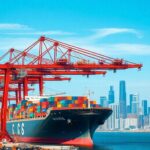

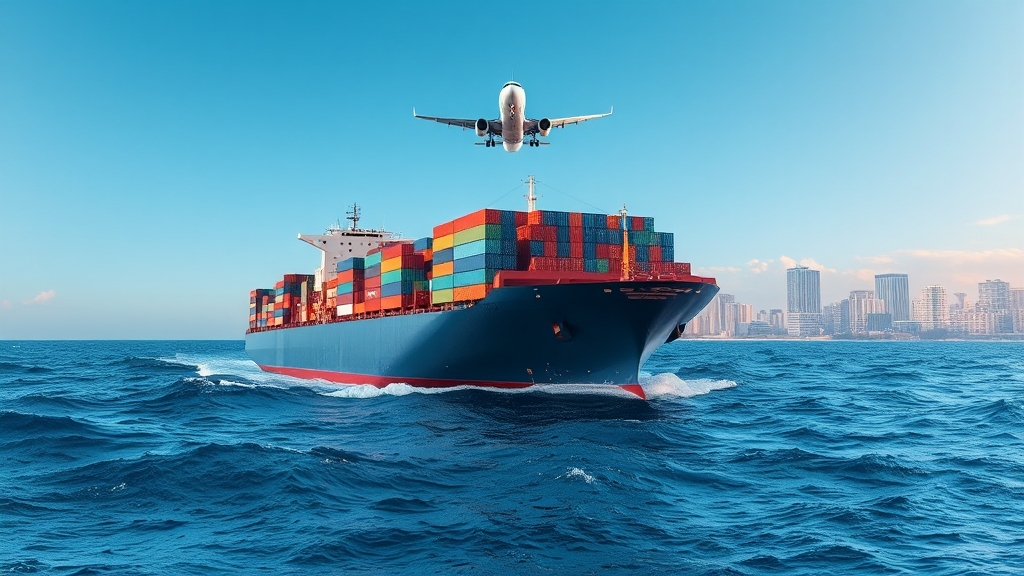
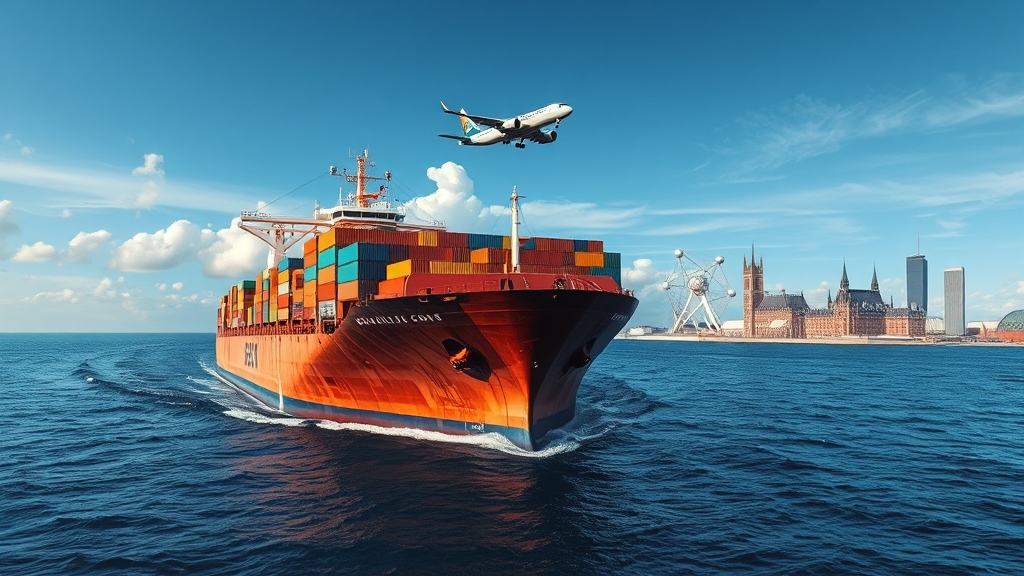
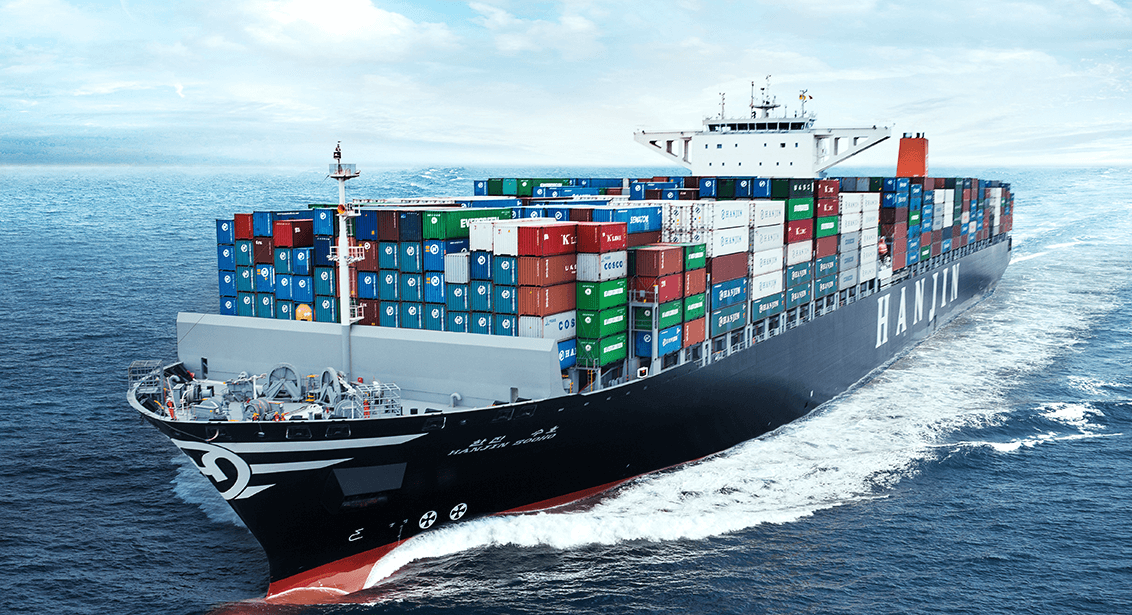
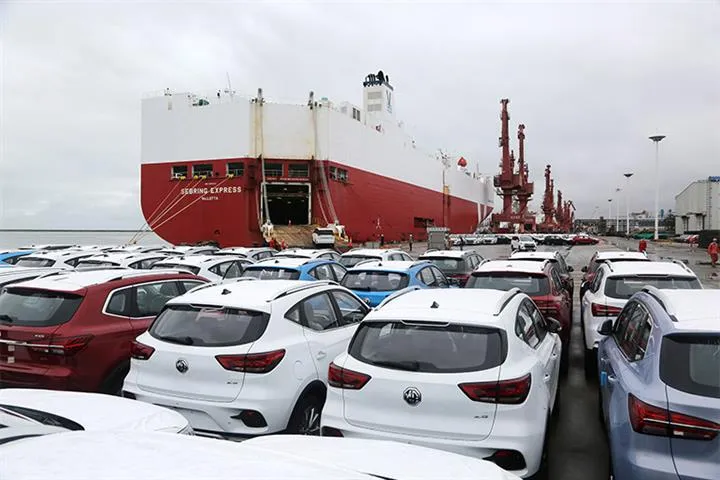






 Afrikaans
Afrikaans Shqip
Shqip አማርኛ
አማርኛ العربية
العربية Հայերեն
Հայերեն Azərbaycan dili
Azərbaycan dili Euskara
Euskara Беларуская мова
Беларуская мова বাংলা
বাংলা Bosanski
Bosanski Български
Български Català
Català Cebuano
Cebuano Chichewa
Chichewa 简体中文
简体中文 繁體中文
繁體中文 Corsu
Corsu Hrvatski
Hrvatski Čeština
Čeština Dansk
Dansk Nederlands
Nederlands English
English Esperanto
Esperanto Eesti
Eesti Filipino
Filipino Suomi
Suomi Français
Français Galego
Galego ქართული
ქართული Deutsch
Deutsch Ελληνικά
Ελληνικά Kreyol ayisyen
Kreyol ayisyen Harshen Hausa
Harshen Hausa Ōlelo Hawaiʻi
Ōlelo Hawaiʻi עִבְרִית
עִבְרִית हिन्दी
हिन्दी Hmong
Hmong Magyar
Magyar Íslenska
Íslenska Igbo
Igbo Bahasa Indonesia
Bahasa Indonesia Gaeilge
Gaeilge Italiano
Italiano 日本語
日本語 Basa Jawa
Basa Jawa ಕನ್ನಡ
ಕನ್ನಡ Қазақ тілі
Қазақ тілі ភាសាខ្មែរ
ភាសាខ្មែរ 한국어
한국어 كوردی
كوردی Кыргызча
Кыргызча ພາສາລາວ
ພາສາລາວ Latin
Latin Latviešu valoda
Latviešu valoda Lietuvių kalba
Lietuvių kalba Lëtzebuergesch
Lëtzebuergesch Македонски јазик
Македонски јазик Malagasy
Malagasy Bahasa Melayu
Bahasa Melayu മലയാളം
മലയാളം Maltese
Maltese Te Reo Māori
Te Reo Māori मराठी
मराठी Монгол
Монгол ဗမာစာ
ဗမာစာ नेपाली
नेपाली Norsk bokmål
Norsk bokmål پښتو
پښتو فارسی
فارسی Polski
Polski Português
Português ਪੰਜਾਬੀ
ਪੰਜਾਬੀ Română
Română Русский
Русский Samoan
Samoan Gàidhlig
Gàidhlig Српски језик
Српски језик Sesotho
Sesotho Shona
Shona سنڌي
سنڌي සිංහල
සිංහල Slovenčina
Slovenčina Slovenščina
Slovenščina Afsoomaali
Afsoomaali Español
Español Basa Sunda
Basa Sunda Kiswahili
Kiswahili Svenska
Svenska Тоҷикӣ
Тоҷикӣ தமிழ்
தமிழ் తెలుగు
తెలుగు ไทย
ไทย Türkçe
Türkçe Українська
Українська اردو
اردو O‘zbekcha
O‘zbekcha Tiếng Việt
Tiếng Việt Cymraeg
Cymraeg יידיש
יידיש Yorùbá
Yorùbá Zulu
Zulu